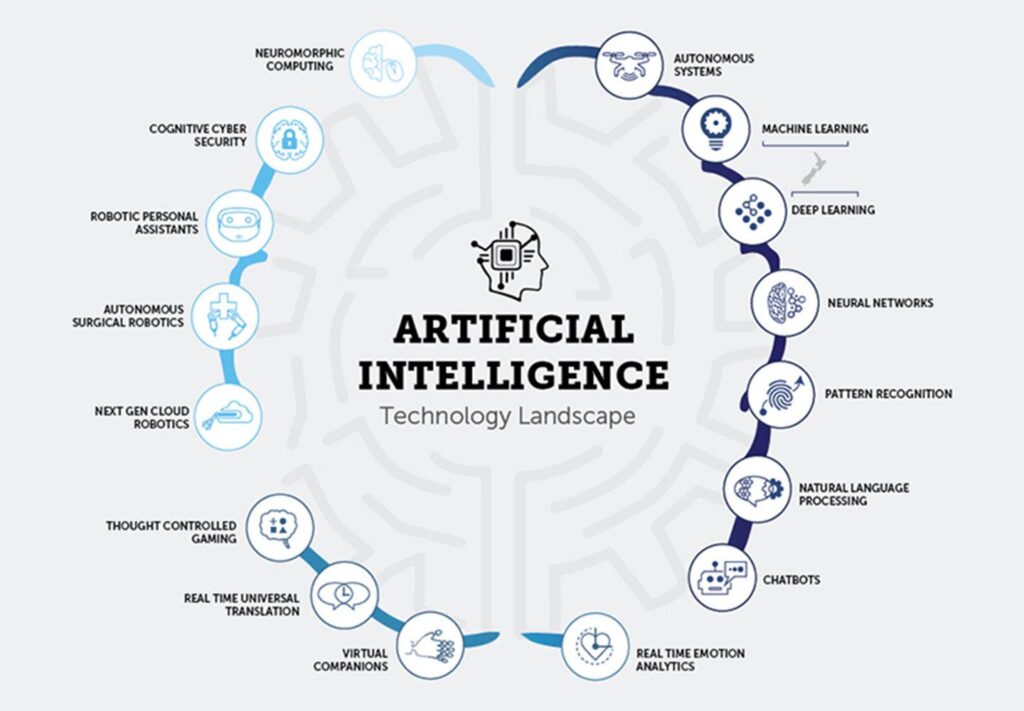Latest Articles
Here’s how AI can be leveraged to improve your work:
1. Automation of Repetitive Tasks
- How AI Helps: AI-powered tools like robotic process automation (RPA) can handle repetitive, time-consuming tasks such as data entry, scheduling, or sorting emails, allowing you to focus on higher-value work.
- Examples:
- Email filtering and prioritization.
- Automating invoicing, payroll, or administrative workflows.
2. Data Analysis and Insights
- How AI Helps: AI can process vast amounts of data quickly, identify patterns, and provide actionable insights to support better decision-making. This is particularly useful in roles related to marketing, finance, and research.
- Examples:
- Analyzing market trends and customer behavior using tools like Google Analytics or predictive analytics software.
- Forecasting sales, inventory needs, or project timelines.
3. Enhanced Productivity with AI-Powered Tools
- How AI Helps: AI can boost your efficiency by automating parts of creative or technical processes. For example, in writing, design, or development, AI tools can assist or take over certain tasks, speeding up the workflow.
- Examples:
- Writing & Editing: Grammarly or ChatGPT can assist with writing, summarizing, or improving text.
- Design: Tools like Canva with AI features for automatic design suggestions or Adobe Sensei for photo editing.
- Programming: GitHub Copilot offers code suggestionArtificial Intelligence (AI) can significantly improve your work across various industries and professions by enhancing productivity, accuracy, and innovation.s and automation for developers.
4. Improved Customer Service with AI Chatbots
- How AI Helps: AI-driven chatbots and virtual assistants can handle basic customer inquiries, freeing up your time and improving customer satisfaction by offering instant responses.
- Examples:
- Using AI tools like Zendesk or Intercom to automate customer support and lead generation.
5. Personalization & Marketing Optimization
- How AI Helps: AI can personalize marketing campaigns and recommend content or products tailored to individual customer preferences.
- Examples:
- AI-driven email marketing platforms like Mailchimp that automatically segment customers and tailor content for higher conversion.
- Recommendation engines on e-commerce platforms, providing customers with personalized product suggestions.
6. Smarter Decision-Making with AI Predictive Analytics
- How AI Helps: AI can forecast trends, financial performance, and customer behavior through predictive analytics. This helps in making data-driven decisions more quickly and accurately.
- Examples:
- Predicting inventory needs and sales trends using tools like IBM Watson.
- AI models to predict churn rates, fraud detection, or market shifts.
7. Enhancing Collaboration with AI-Powered Tools
- How AI Helps: AI can improve collaboration by summarizing meetings, suggesting relevant resources, or organizing tasks more efficiently.
- Examples:
- Microsoft Teams with AI features like automatic meeting transcriptions and action item tracking.
- Trello or Asana with AI-driven task management suggestions.
8. Content Creation and Generation
- How AI Helps: AI tools can assist in generating high-quality content for blogs, social media, reports, or product descriptions, saving time and enhancing creativity.
- Examples:
- AI content creation tools like ChatGPT, Jasper, or Copy.ai for writing blog posts or ad copy.
- Tools like Lumen5 or Pictory for automating video creation from text or scripts.
9. Streamlining Recruitment and Hiring
- How AI Helps: AI can speed up the hiring process by screening resumes, ranking candidates, and scheduling interviews.
- Examples:
- LinkedIn Talent Insights and other AI tools for automating talent search and reducing recruitment time.
- AI-driven platforms like HireVue for video interviews and candidate assessment.
10. Optimizing Project Management
- How AI Helps: AI can help optimize project management by predicting risks, suggesting improvements, and streamlining timelines.
- Examples:
- Monday.com or Asana with AI-powered project analytics and task management.
- Tools like Wrike for task prioritization and team efficiency predictions.
11. Enhancing Creativity and Innovation
- How AI Helps: AI tools can generate ideas, assist with brainstorming, and even create prototypes or new designs based on given data.
- Examples:
- DALL·E for generating artwork or designs from text descriptions.
- RunwayML for creating AI-driven visual content for creatives and filmmakers.
12. Cybersecurity and Risk Management
- How AI Helps: AI-driven tools can enhance security by identifying threats and mitigating risks in real time, reducing the chance of data breaches or fraud.
- Examples:
- AI-powered security platforms like Darktrace that monitor network activity for potential threats.
- Tools like CrowdStrike for real-time threat detection and response.
13. Virtual Assistants for Time Management
- How AI Helps: Virtual assistants can manage your schedule, set reminders, and handle small tasks, helping you focus on core activities.
- Examples:
- AI assistants like Google Assistant or Siri for scheduling meetings, reminders, and managing to-do lists.
- Calendly for AI-driven meeting scheduling and calendar optimization.
14. Learning and Skill Development
- How AI Helps: AI-powered platforms offer personalized learning paths and recommendations to help you quickly acquire new skills relevant to your career.
- Examples:
- Coursera and Udemy with AI features to recommend courses based on your learning goals.
- Duolingo and similar platforms that use AI to personalize language learning.
15. Healthcare and Wellbeing
- How AI Helps: If you work in healthcare or personal well-being, AI tools can assist with diagnostics, health monitoring, or personalized health recommendations.
- Examples:
- AI tools for automating patient diagnosis or tracking health metrics through wearables.
- Mental health apps like Woebot or Wysa that provide AI-driven support.
Conclusion:
Leveraging AI in your work can lead to increased efficiency, improved decision-making, and innovative solutions. The key is to identify which tasks can be enhanced or automated by AI to focus more on creative, strategic, and high-impact areas.
-
AI Personalized Treatment Plans
•
AI in Personalized Treatment Plans: Revolutionizing Healthcare Artificial intelligence (AI) has significantly advanced the field of personalized medicine by enabling the development of tailored treatment plans based on individual patient data. With its ability to analyze vast amounts of data quickly and accurately, AI can provide insights that are beyond…
-
How AI is Assisting in Drug Discovery
•
How AI is Assisting in Drug Discovery Artificial intelligence (AI) is revolutionizing the field of drug discovery, transforming what has traditionally been a time-consuming, expensive, and uncertain process. AI offers unprecedented opportunities to accelerate the development of new medicines by applying advanced computational techniques to analyze vast datasets, model complex…
-
AI can provide diagnostic assistance in medicine
•
Artificial Intelligence (AI) is revolutionizing the medical field, particularly in providing diagnostic assistance. Through advanced machine learning algorithms and neural networks, AI can analyze vast amounts of medical data, including patient histories, lab results, and imaging scans, to assist healthcare professionals in diagnosing diseases more accurately and efficiently. One major…






